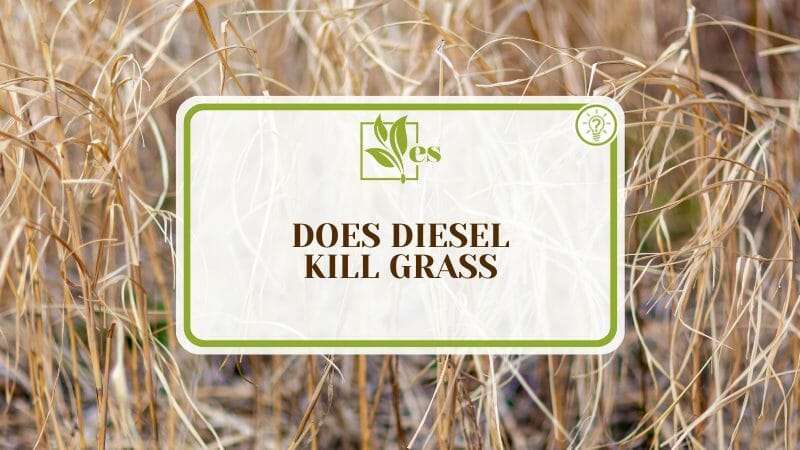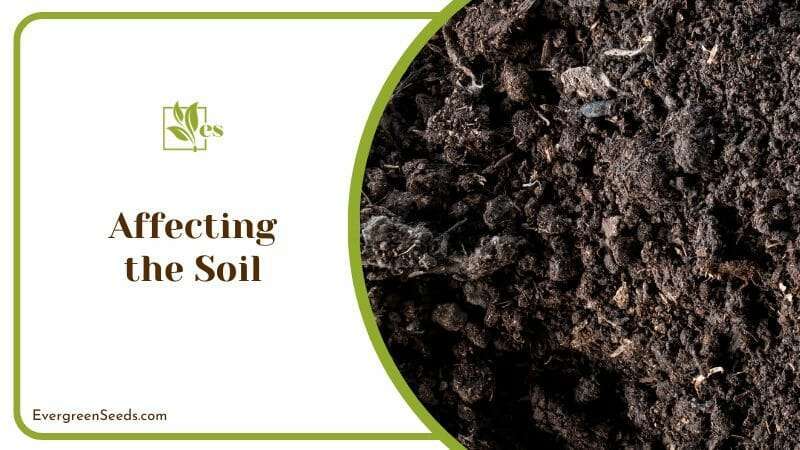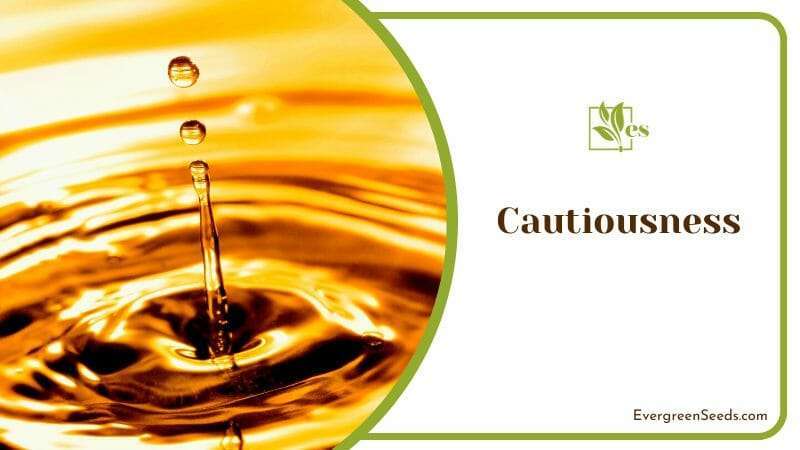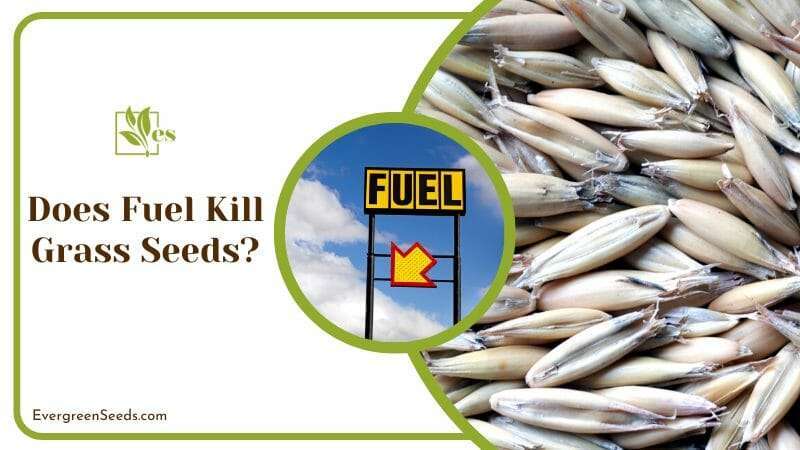- How Tall Do Geraniums Grow: Understanding Their Growth Potential - October 25, 2024
- How Tall Do Asiatic Lilies Grow: A Gardener’s Guide to Ideal Heights - October 25, 2024
- How Tall Do Meyer Lemon Trees Grow: Understanding Their Growth Potential - October 25, 2024
Does Diesel kill grass? This fuel is often labelled as the most potent permanent eradicator of weeds from the lawn. However, it will also kill grass and all other life forms within the soil.

Please read this guide to learn how Diesel affects grass and how to utilize its weed control properties without harming the grass.
JUMP TO TOPIC
Does Diesel Kill Grass?
💥Yes, Diesel kills grass permanently after coming in contact with it. The fuel will spread toxicity and heat the green grass, resulting in root damage. Overall, the grass will be dead instantly and no longer green and active.
It has to be one of the most potent weeds and grass killers. Diesel fuel is extremely toxic and immediately heats up any vegetation it comes in contact with, especially the lawn grass. It will permanently kill grass and weeds by absorbing down to their roots and burning them up, because this is fuel and it is not safe.
Even a small amount of Diesel is enough to kill all grass in the area where it is spilled. It then stays within the upper surfaces of the soil until the whole of the topsoil is removed altogether.
As long as some Diesel remains in the topsoil, no new grass or weed will grow in that area. Being left without nitrogen, the grass will have very slow growth, shallow roots, and poor-quality blades.
Note that fragments of the Diesel might stay in the soil for years if your area receives little annual rainfall.
Even if grass comes back in patches, it will be of very poor quality, because of the hazard that it has been in contact to. You will have to replace the topsoil altogether to get your grass’s greens back to life again. It does not matter the type of grass you have. Even if you have a Zoysia or Bermuda, the results will not be good.
– Affecting The Soil
Diesel will also kill the microbial ecosystem and the bugs that populate the soil, whether they are advantageous worms or even helpful bacteria. Most of these are beneficial organisms that are an essential part of growing a healthy lawn.
Beneficial soil bacteria that convert nitrites to nitrates to be used by the soil are wiped out or dead from the fuel, depriving any remaining grass of the nitrogen it needs to grow.

Earthworms and other wriggling insects are important because they burrow extensively into the soil and improve its aeration.
They also help decompose the organic matter in the soil into a form that the grass can use as food. Diesel will also wipe out these from the soil, including their eggs and larvae.
– Accidental Spillover on The Lawn
Once Diesel touches grass blades, it removes the protective waxy layer on the surface of the lawn and then it then begins killing it by drying it out. It completes its killing action within a brief period of two days. This leads one to wonder if the grass can be saved within two days of an accidental spillover.
Immediately after a spillover, remove or replace the affected area by placing a tarp and cardboard on the sides. Then remove the top four inches of the soil using a shovel. This drastic measure is necessary to prevent Diesel from seeping deeper into the soil.
Wear gloves, so your skin doesn’t directly contact the contaminated soil. Flush the area using a large quantity of water. Use fresh soil and sand to fill the hole created in the spilled area. It is okay to sow the grass seeds immediately within the soil.
If you do something about a spillover by yourself, it takes a long time for the Diesel to clear out of the soil. Say you spilled about a gallon of Diesel on a lawn of three square feet. It takes as much as two to four years, even in well-draining soil. It might take even longer in poor-quality soil and areas with decreased rainfall.
How To Use Diesel To Kill Weeds?
Use diesel to kill weeds by getting some, and placing it in a plastic bottle and narrowing the nozzle. As you inspect the lawn, you may start spraying on the weeds that you see growing, after a short period, they will degenerate and die.
Begin by asking your local gas station to give you a gallon of Diesel in a gas canister. Unless your lawn is particularly big, you will only need this. Less Diesel will be needed if you opt for only spot treatment of weeds.
Then, use a funnel to fill a plastic spray bottle with Diesel without spilling any over. A spray bottle with a narrow nozzle will give you better control over where to spray Diesel.
Make sure you remove the bottle from the lawn to prevent accidental spillover. Observe and issue your lawn and mark the spots where weeds are growing especially thicker.
Set the nozzle to either jet stream or spray mode and spray only on the weeds only. Spraying from a distance while standing up will spread the fuel further where you might not want it to.
Diesel kills weeds permanently, even if a small amount is sprayed. Just spray a little on the leaves and the soil so that it reaches the roots, and that’s it.
Take great care to protect the surrounding grass and plants from being sprayed on by the fuel. Using Diesel responsibly is a good idea if you are sick and tired of weeds growing here and there on the lawn.
Give Diesel 48 hours to kill weeds, then uproot the wilted, dead weeds by hand. Unlike most organic weed killers, nonetheless, it works effectively and does not need to be reapplied.
– Cautiousness
Do you own pets that like to play around on the lawn? When using Diesel to kill grass or weeds, you risk exposing your beloved pets to its potential toxicity. Even a small amount of Diesel can produce toxicity when ingested or after touching bare skin.
Depending on how much the pet has ingested, a variety of symptoms will ensure. When ingested, your pet will suffer greatly as it experiences mouth burns, abdominal cramps, nausea, and vomiting. The skin around the mouth or elsewhere that comes in contact with Diesel might experience redness, itching, and inflammation.

After using Diesel on the lawn, if your pet experiences any of the symptoms mentioned above, you must take them to the vet immediately. It doesn’t matter how mild the symptoms presented are. Do not try any home remedies, not even inducing vomiting.
Note that sometimes the fumes can produce long-term harm and breathing difficulties. Children and the elderly are especially prone to this, so you better keep them off the lawn during diesel application and a couple of days afterward.
When not using, store the Diesel in a tightly covered lid someplace out of reach from pets and curious kids. Having a large quantity of Diesel in a container within the house is unsafe.
– Natural Alternatives
There are a lot of natural alternatives that are way safer than Diesel that can be used to get rid of grass or weed. Natural methods take a long time and have multiple applications. Still, they don’t pose health risks or contaminate the soil for years.
The best way to suffocate a patch of grass or weeds is by cutting off its light and air supply. Cover that area with a thick layer of cardboard or newspapers.
White vinegar with five percent or higher acetic acid is strong enough to kill grass safely without affecting the soil. Add two teaspoons of vinegar to one gallon of water and spray it every week until weeds start dying.
Boiling water is also an effective weed killer that burns everything it falls on. It works better on grass growing between cracks in the sidewalks or driveways than on turfs and lawns.
Soap water is a non-selective herbicide that strips wax from the leaf blades. Take a gallon of water, and proceed with adding a few drops of dishwashing solution to it, along with a few drops of vinegar.
Does Fuel Kill Grass Seeds?
No, fuel does not kill grass seeds or destroy them, even in case of direct contact. The hard protective coating of seeds keeps them well protected from dying and desiccating after a diesel spillover, which means that it will not be harmed or dead.

Still, no seeds in soil contaminated with Diesel will germinate unless the diesel spillover is spotless. Even afterward, you should expect a poorer yield because of how negatively this fuel impacts the soil.
You will have to put in double the effort to get new grass seeds to germinate and grow after Diesel permanently wipes out all grass and weeds from your lawn. Check out a comparison between Bermuda grass and Kentucky Bluegrass and their tolerance for toxic products.








